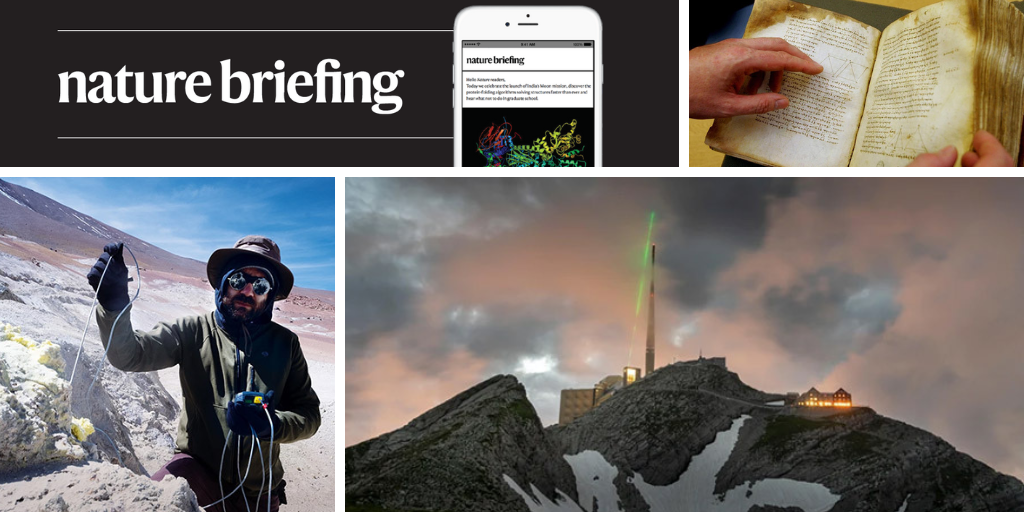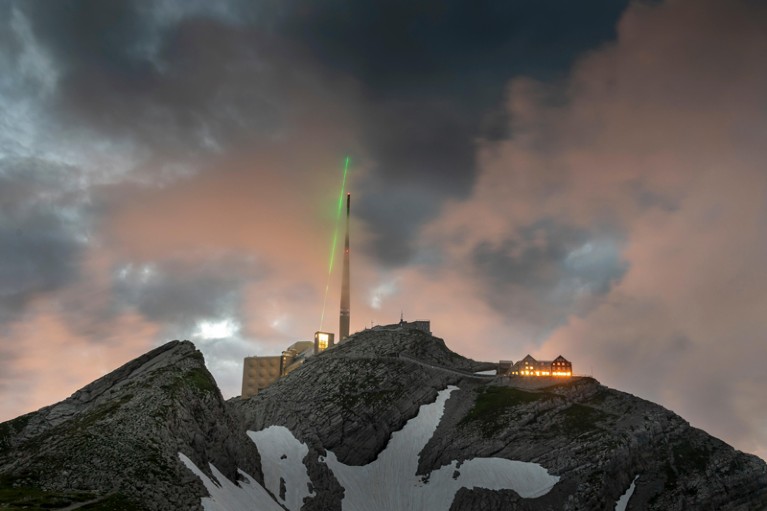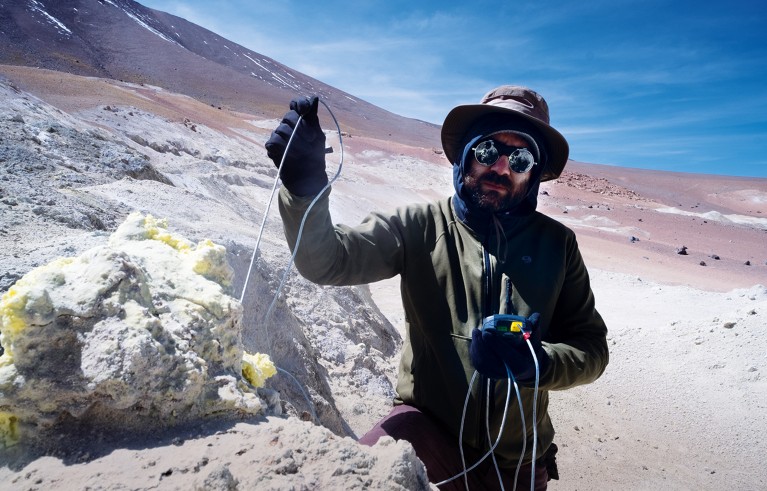Hello Nature readers, would you like to get this Briefing in your inbox free every day? Sign up here
A laser beam (green) shoots into the sky alongside the 124-metre-high telecommunications tower on Säntis mountain in the Swiss Alps.Credit: TRUMPF/Martin Stollberg
A laser that fires 1,000 high-energy pulses per second successfully diverted lightning strikes for the first time in real-world experiments. The laser lightning rod creates a conductive path for lightning to travel down, just as a metal wire can. “It’s like drilling a hole through the air with the laser,” says physicist Aurélien Houard. It will take time to adapt the one-of-a-kind system to make it cheaper and more practical. “If it’s useful or not, only time can say,” says laser-physicist Stelios Tzortzakis.
Reference: Nature Photonics paper
At least 65 million people worldwide are estimated to have long COVID — and the actual number is probably higher. A review of the state of knowledge about the condition estimates that 10% of people infected with SARS-CoV-2 will experience long-lasting symptoms. “Diagnostic and treatment options are currently insufficient, and many clinical trials are urgently needed,” concludes the research. The finding should prompt a rethink of policies that allow COVID-19 to spread almost unchecked among people who are least vulnerable to severe disease, says infectious-disease researcher Brendan Crabb. “If you factor in long COVID, then we’re all vulnerable.”
Reference: Nature Reviews Microbiology paper
Male trilobites of the species Walliserops trifurcatus might have used their huge trident-shaped horn in jousting matches to win females’ favour 400 million years ago. The idea is reminiscent of the modern Japanese rhinoceros beetle (Trypoxylus dichotomus), which flips opponents with its rake-like horn. The trilobite’s horn isn’t mobile enough to be an effective defence and is too long and oddly angled for foraging. And scientists have found a fossil of an adult trilobite with a deformed trident, suggesting that the structure wasn’t crucial for survival. This might be the oldest example of specialized sexual combat.
The New York Times | 5 min read
Features & opinion
Scientists are finding creative ways to trim costs amid inflation — one US lab has seen the price of nitrile gloves increase by 91% since 2018. Shopping around can cut around 10% from a lab-supply budget, and teams can join forces to benefit from bulk discounts. Instruments’ running costs can be kept down by maintaining them and evaluating how necessary it is to use them. And rethinking experimental design can help researchers to assess which reagents or kits are really needed.
Although Euclid’s ideas about geometry in 300 BC were rooted in physical reality, the field became ever more abstract throughout the twentieth century. In her new book, historian Alma Steingart reveals how this push for abstraction was mirrored by, and often triggered, parallel trends in economics, sociology, psychology and political science. “‘Mathematizing’ a problem did not mean to measure and compute, but to reveal a hidden skeleton of conceptual relationships: to formulate the underlying idea in abstract mathematical language,” writes reviewer and Nature reporter Davide Castelvecchi.
Scientists at CERN, Europe’s particle-physics laboratory near Geneva, Switzerland, are at an impasse over how the Russian invasion of Ukraine will affect their uniquely international collaboration. Since March, research from the Large Hadron Collider has been published only as preprints without the names of authors and funders because some members object to co-authorship with Russian institutes. More than 70 papers have so far been caught up in the stalemate, putting the progression of early-career scientists at risk.
Where I work
Gerdhard Jessen is a microbial ecologist at the Austral University of Chile in Valdivia.Credit: Jacopo Pasotti for Nature
From the depths of the Black Sea to boiling hot springs in Antarctica, ecologist Gerdhard Jessen has explored some extreme environments in search of microorganisms. He’s now working to uncover the biological interactions between microbes that live beneath Chile’s hydrothermal vents, and how climate change might affect them.
(Nature | 3 min read) (Jacopo Pasotti for Nature)








More News
I study artefacts left in prehistoric caves
How artificial intelligence is helping to identify global inequalities
Tackling ‘wicked’ problems calls for engineers with social responsibility